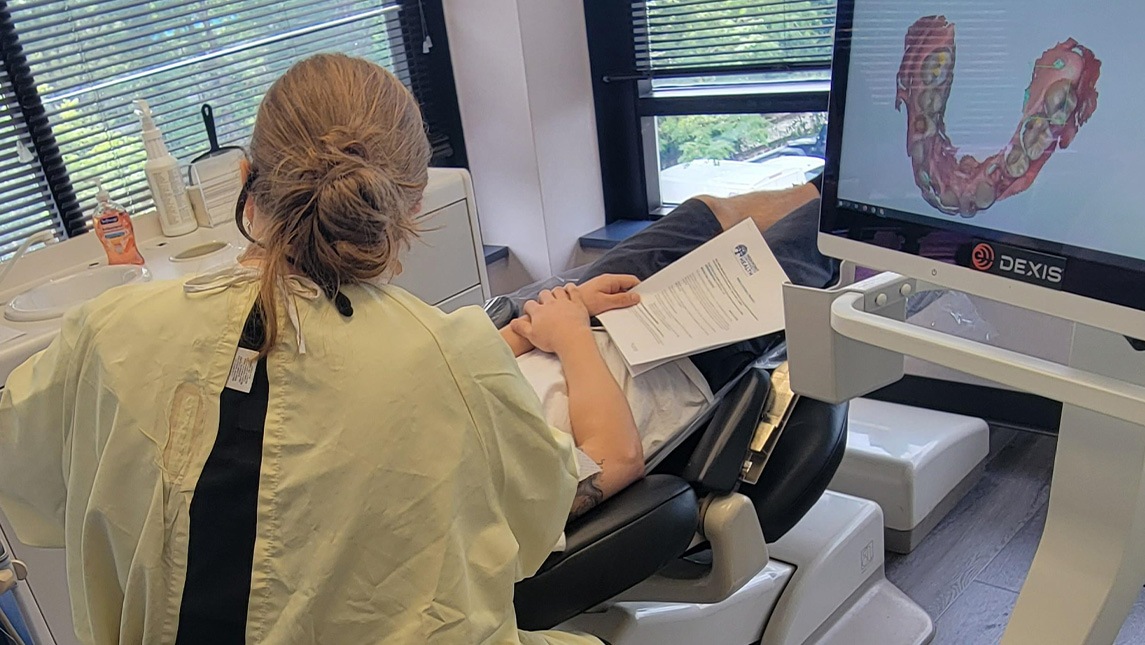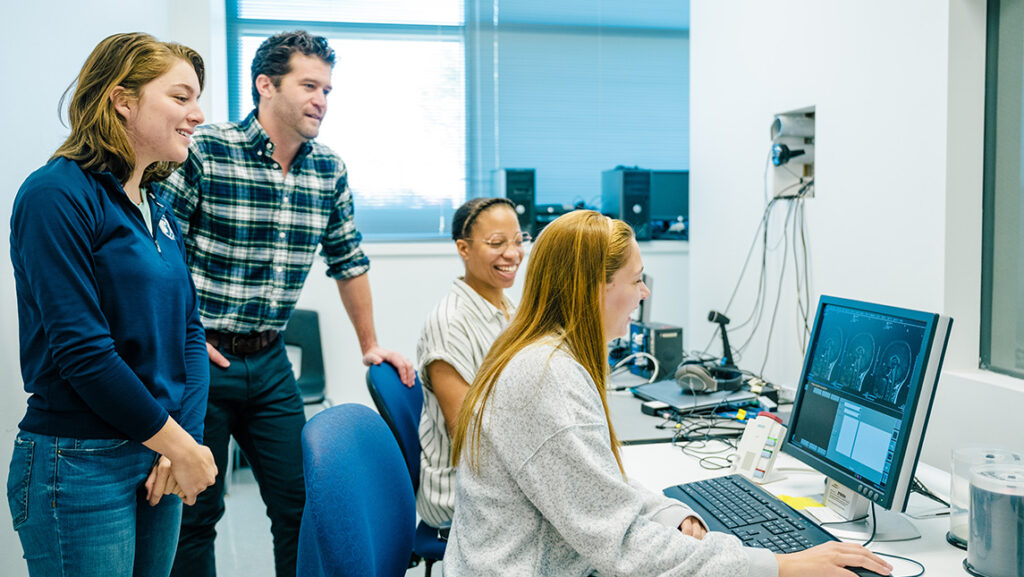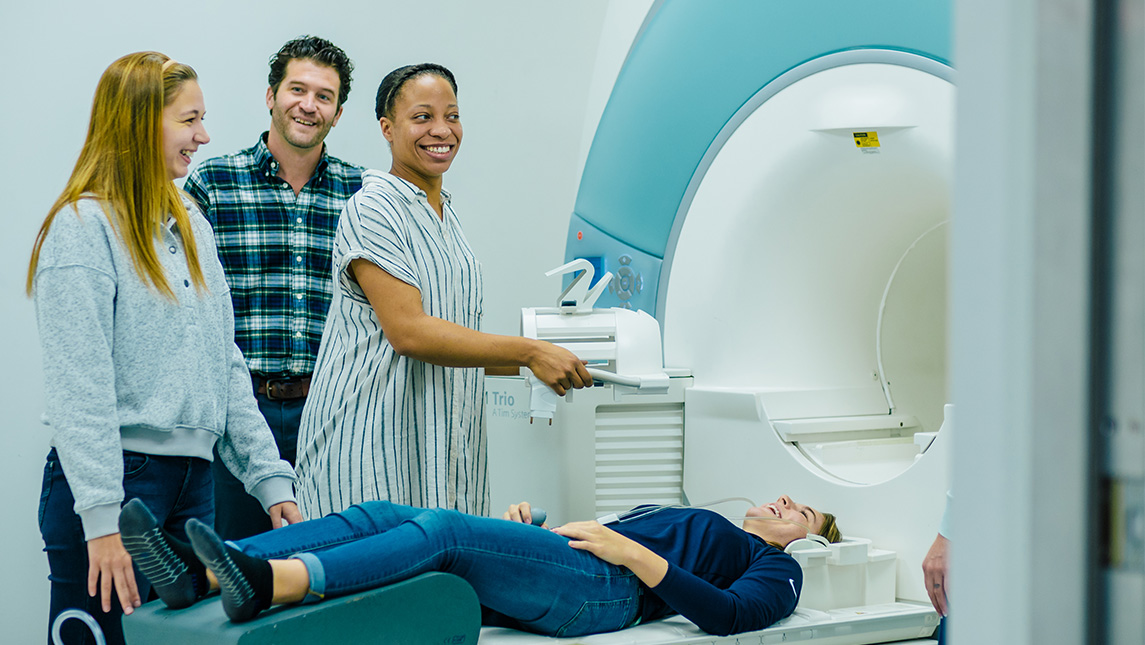Researchers at UNC Greensboro and High Point University are collaborating on two studies to improve treatments for concussion and burning mouth syndrome – a complex neuropathic condition that is often seen in cancer patients – also known as glossodynia.

Dr. Derek Monroe, assistant professor in UNCG’s Department of Kinesiology, has fitted about a dozen local mixed martial arts athletes with mouth guards that use sensors to measure the frequency and magnitude of impacts they sustain. The mouth guards are being fit for each athlete using a specialized dental scanner at HPU’s Workman School of Dental Medicine. Dr. Monroe plans to work with the athletes to analyze their mouthguard data alongside images of their brain, collected using advanced MRI at UNCG, for patterns that might put them at risk for a concussion.
“The sensors are accelerometers that measure the direction and velocity of head movements. We think the accumulation of those head movements is what changes the way athletes think and feel. Ultimately, these impacts lead to concussion in some athletes,” said Dr. Monroe. “We don’t understand the neurobiology of all these problems, and that’s where the imaging-informed analyses of mouthguard data comes in. What this research is ultimately all about is application and translation to practice to make the sport safer.”
“Our approach is to engage in translational research and patient care research an to collaborate with key players that will allow us to answer the question of how we can improve the overall health of patients using our infrastructure,” said Dr. Ali Shazib, associate professor, and dean of practice at HPU’s Workman School of Dental Medicine.
Collaboration Continued
Building on their initial collaboration, Dr. Monroe and Dr. Shazib are also working together on a study to better understand glossodynia. The condition is often described as a burning, scalding, or tingling feeling in the mouth that may occur every day for months or longer. Dry mouth or an altered taste in the mouth may accompany the pain.

“The typical patient with burning mouth syndrome often sees seven or eight health care providers before they are formally diagnosed,” said Dr. Shazib. “Many providers don’t even know what burning mouth syndrome is.”
With Dr. Monroe’s expertise in MRI, UNCG’s Gateway MRI Center, and Dr. Shazib’s work with glossodynia patients, the pair plan to see how MRI scans can better inform treatment.
“These patients respond differently to treatments and by leveraging my skill set with functional MRI and the facilities and resources offered by UNCG, we could really help to make inroads in an understudied condition,” Dr. Monroe said.
“There are different treatments we have explored as clinicians, but they haven’t been correlated with neuroscience or with MRI images,” said Dr. Shazib.
OPENING GATEWAYS
The collaboration will not only benefit those suffering concussions and glossodynia, but also provide students at each university with practical research experience.
“Many undergraduate kinesiology students are aspiring to work in a clinical role and the more connections we can provide to them, the better prepared they will be for clinical careers and the better it makes our kinesiology program. I expect these efforts will make them aware of career trajectories they had not considered before,” said Dr. Monroe.
“This collaboration allows us to open gateways for research projects and gives students the opportunity to rotate between the two institutes,” says Dr. Shazib. “We are really excited to have a partnership that is open, inclusive and expands on the healthcare, education and teaching side.”
Story by Avery Craine Powell, University Communications
Photography by Sean Norona, University Communications
Additional Photography courtesy of Dr. Ali Shazib

Help others heal.



